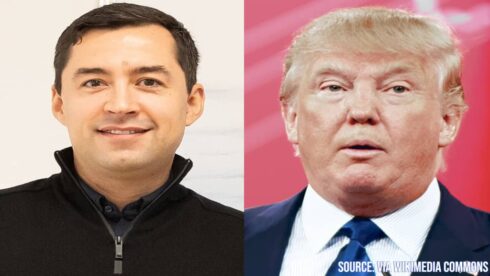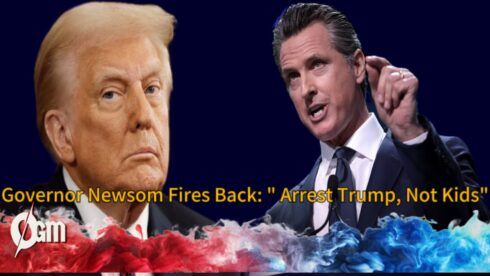Greenland’s Prime Minister, Múte Egede, rebuffed claims by U.S. President-elect Donald Trump regarding America’s supposed need to “own” the Arctic island in a decisive and unequivocal statement. This marks yet another chapter in Donald Trump’s controversial rhetoric, as he recently declared on Truth Social that Greenland’s acquisition was a matter of “national security” for the United States.
Múte Egede responded firmly, stating, “Greenland is ours. We are not for sale and will never be for sale.” This sharp retort underscores Greenland’s steadfast commitment to its sovereignty, drawing attention to the island’s enduring fight for freedom and independence. Múte Egede further emphasized the importance of rejecting any notions that compromise Greenland’s autonomy.
Donald Trump’s ‘Truth Social’ Post Ignites International Criticism
Donald Trump’s declaration on Truth Social quickly sparked outrage across political and international spheres. “For purposes of National Security and Freedom throughout the World, the United States of America feels that the ownership and control of Greenland is an absolute necessity,” he wrote. The statement drew sharp criticism for its tone and implications, with experts labeling it as both imperialistic and detached from global realities.
The claim follows Donald Trump’s earlier attempts during his presidency to purchase Greenland, an idea that was met with widespread ridicule. Many viewed the post as yet another display of Donald Trump’s tendency to oversimplify complex geopolitical matters, treating international relations as a personal business transaction.
Greenland’s Struggle for Freedom: A Historical Perspective
Prime Minister Múte Egede’s words resonate deeply within the context of Greenland’s historical struggle for self-determination. A Danish territory with increasing autonomy, Greenland has worked tirelessly to carve out its identity and independence on the global stage. Múte Egede’s assertion of sovereignty reflects the island’s ongoing efforts to resist external pressures and control.
Greenland’s rich natural resources and strategic location have long attracted foreign interest, but its leadership remains unwavering in its commitment to putting the welfare and voice of its citizens first. This latest episode serves as a reminder of the delicate balance between national interest and global diplomacy.
Global Leaders Condemn Donald Trump’s Expansionist Ideology
Donald Trump’s remarks have been met with widespread criticism from international leaders and analysts. Political commentators have described his rhetoric as reminiscent of outdated colonial ideologies, further isolating the U.S. from its global allies. European leaders, in particular, have expressed solidarity with Greenland, praising Múte Egede’s swift and assertive response.
“Such statements not only undermine global diplomacy but also display a lack of respect for sovereignty and international law,” noted one European Union official. Donald Trump’s remarks have also fueled concerns about the potential ramifications of his policies if he were to reclaim the presidency.
The Role of Greenland in Modern Geopolitics
Greenland’s strategic importance has increased significantly in recent years, owing to its abundant natural resources and proximity to key Arctic trade routes. As climate change accelerates ice melt, the region’s geopolitical significance has become a focal point for major powers, including the U.S., China, and Russia.
However, Greenland’s leadership has been clear about its priorities. Prime Minister Múte Egede and his administration have emphasized sustainable development and environmental protection, rejecting exploitative agendas from foreign entities. Donald Trump’s claims only reinforce the necessity for Greenland to guard its autonomy fiercely.
Donald Trump’s Track Record: A Prelude to Further Controversy?
Even as President-elect, Donald Trump’s actions and statements continue to generate controversy on the world stage. His latest remarks about Greenland serve as a stark reminder of his polarizing approach to governance, which often prioritizes sensationalism over substance.
Critics argue that Donald Trump’s rhetoric undermines the credibility of the United States and damages its standing in international affairs. As the 2024 inauguration approaches, global leaders are preparing for the potential challenges his return to power could bring, including heightened tensions and unpredictable policy shifts.














